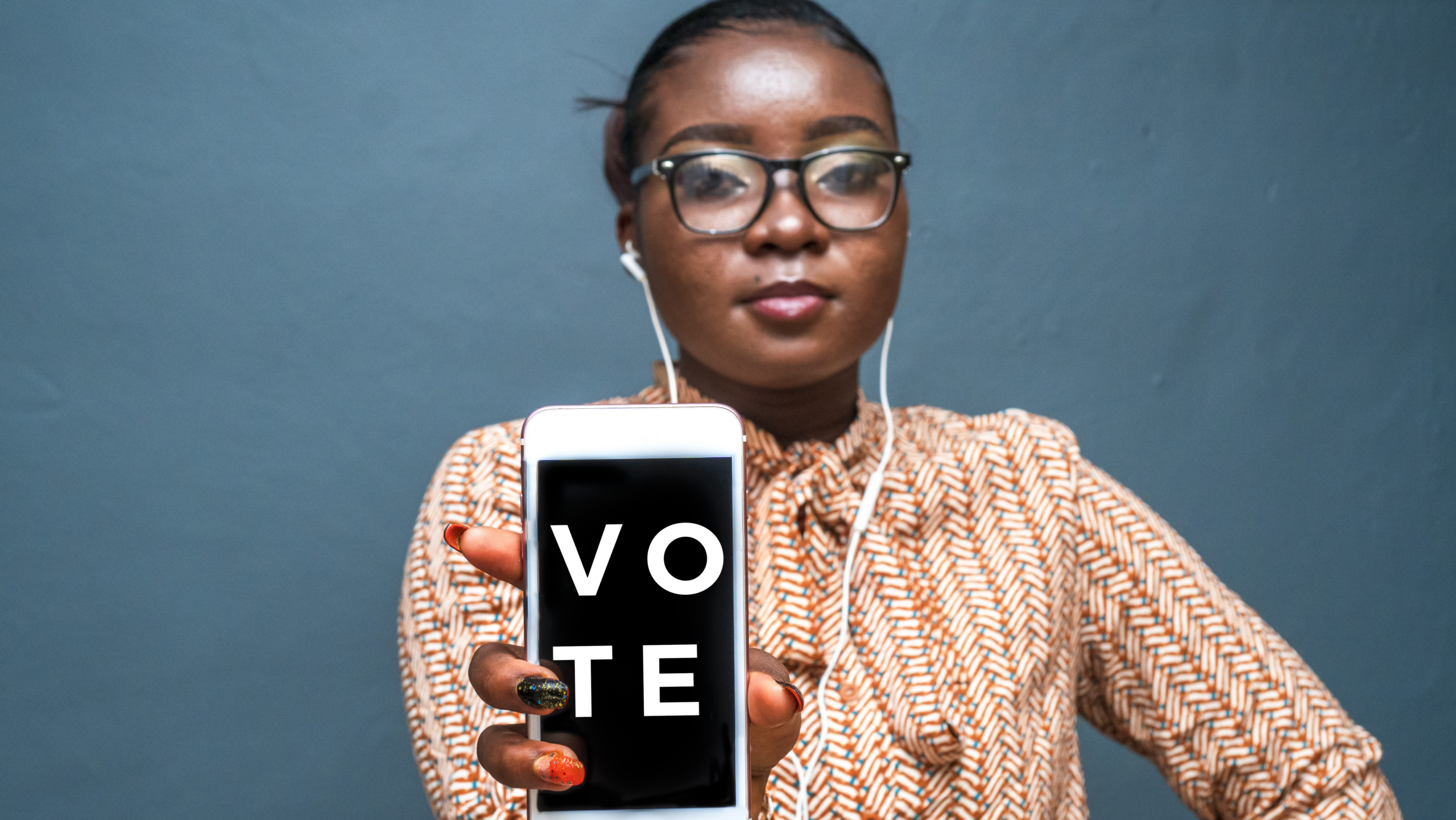In an excerpt from the book “Vote With Your Phone,” Martin Luther King III argues that mobile voting would empower all voters to exercise their most fundamental democratic right using the same technology they use in their everyday lives.
Editor’s note: The following article is an op-ed, and the views expressed are the author’s own. Read more opinions on theGrio.
Excerpted from “Vote With Your Phone: Why Mobile Voting Is Our Final Shot at Saving Democracy,” by Bradley Tusk. Used with permission of the publisher, Sourcebooks, Inc.
In 2023, we marked the 60th anniversary of the March on Washington and my father’s “I Have a Dream” speech. The anniversary was especially poignant at this critical moment when our democracy has reached an inflection point and so much of what my father fought for is being eroded.
Rights that Americans hold dear are under assault across the country. Reproductive rights, the ability to be our full selves and the very pillars of our democracy are growing weaker every single day. The crisis has grown so dire that my daughter enjoys fewer rights today than when she was born 15 years ago.
It is no accident that the erosion of our civil liberties has coincided with the rolling back of voting rights in states across the country. When my father marched for equality decades ago, he understood that voting rights were a necessary part of the struggle for freedom and equality. Those on the other side know it too, which is why they have systematically made it harder for every American to vote. Eligibility requirements, polling locations, and open hours at the polls have all been manipulated to keep too many Americans from being able to vote. In my home state of Georgia, they even made it a crime to give water to people standing in line to vote.
Our voting rights should be sacred, and any effort to suppress or retract the right to vote must be stopped. My father used to say that “oppression is being legislated.” It is change for the better that should be legislated, not oppression. Legislate change. Legislate hope. Not hate.
That is why my wife, Arndrea, and I are mobilizing to press for new federal voting-rights legislation to restore the right to vote not merely as an aspiration but a reality, and to guarantee that every eligible voter, regardless of race, nationality, or location, can access and cast their ballot knowing that it counts.
Gerren Keith Gaynor
Michael Harriot
April Ryan
Gerren Keith Gaynor
Natasha S. Alford
Gerren Keith Gaynor
Gerren Keith Gaynor
Natasha S. Alford
But we don’t need to wait on Congress to act. There are efforts across the country to expand access to the ballot, including the campaign for mobile voting. Few efforts hold the potential to impact voter participation like mobile voting. Far too many voters are left out of the voting booth by existing voting options — from our military service members to voters with disabilities and even our youth. Mobile voting would empower all voters to exercise their most fundamental democratic right using the same technology they use in their everyday lives. No more waiting in hours-long lines at the polls. No harried parents carrying tired toddlers. No young students trying to balance school, work, and life while finding a way to get to the polls. And no more threats or intimidation to keep certain voters from the polls.
Why wouldn’t we increase participation in elections to give everyone their chance to be heard? Why wouldn’t we ease barriers on low-income voters and help hourly workers? Why wouldn’t we eliminate barriers encountered by voters with disabilities who find it incredibly challenging to get to polling places on Election Day? Shouldn’t they have the same right to cast a ballot as everyone else?
Every vote lost to accessibility or suppression is a loss for democracy. Increasing access is essential and to evolve through technology is a sign of the times. We already live so much of our daily lives on our smartphones — from paying our bills to accessing health care. I’ve been doing my banking on my phone for years, and at no time did my money go where it was not supposed to. We know there are security risks inherent in mobile voting just as there are in other voting methods. But given how embedded mobile technology tools are in our daily lives, we also understand that risks can be mitigated. Surely the need to protect and expand access to our democracy mandates that we balance those risks and ensure every citizen can exercise their right to vote.
Every positive change is always hard-won. We at the Drum Major Institute like to say, “Don’t give up, don’t give out, don’t give in.” My dad used to say a voteless people is a powerless people. And one of the most important steps we can take is that short step to the ballot box. Vote with your heart and mind, but vote in the most accessible, available way possible. Democracy depends on it.
Martin Luther King III is a civil rights leader, Drum Major Institute chairman and former president of the Southern Christian Leadership Conference.
More About:Elections Politics
By TheGrio
By TheGrio
By TheGrio
By TheGrio
By TheMix.net
By A Girls Guide to Cars
By TheMix.net
By Popviewers
By MovieMaker Magazine
Weekly New Episodes
Stream Now

